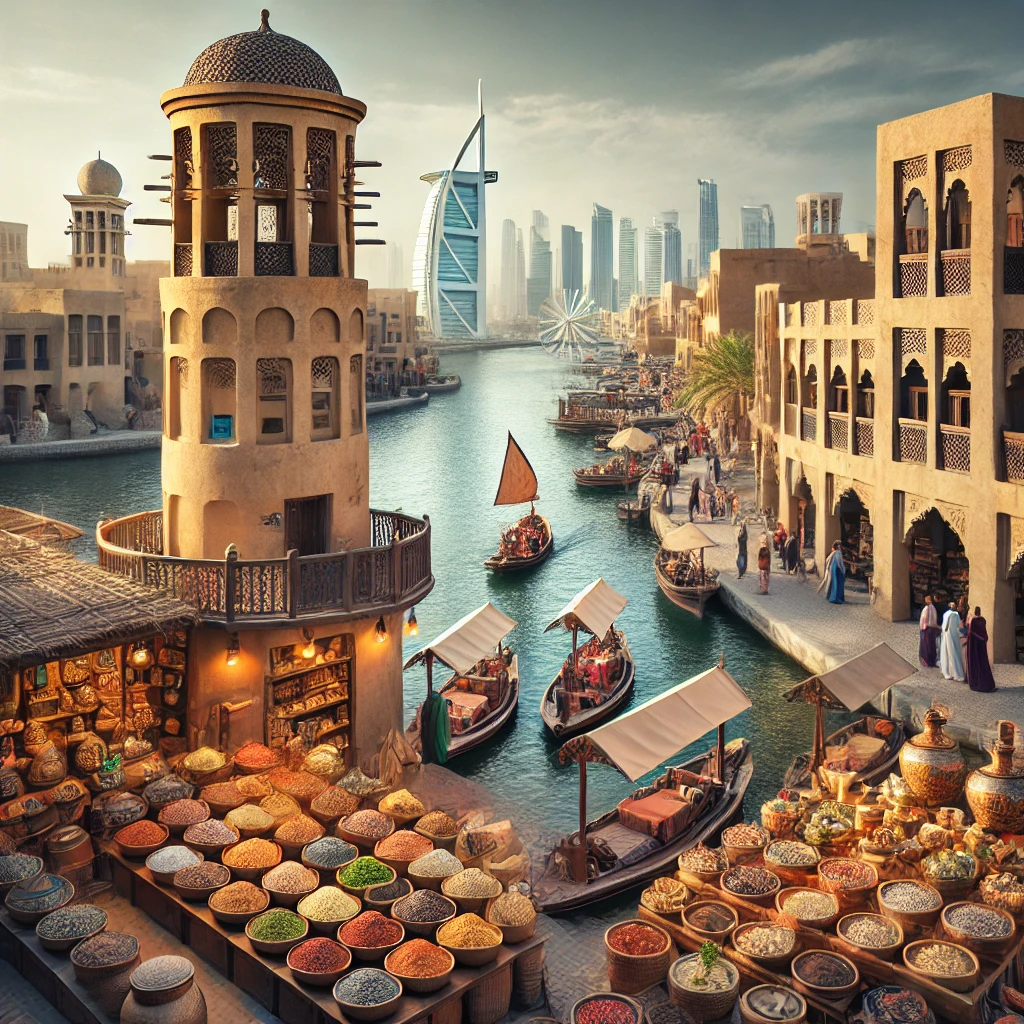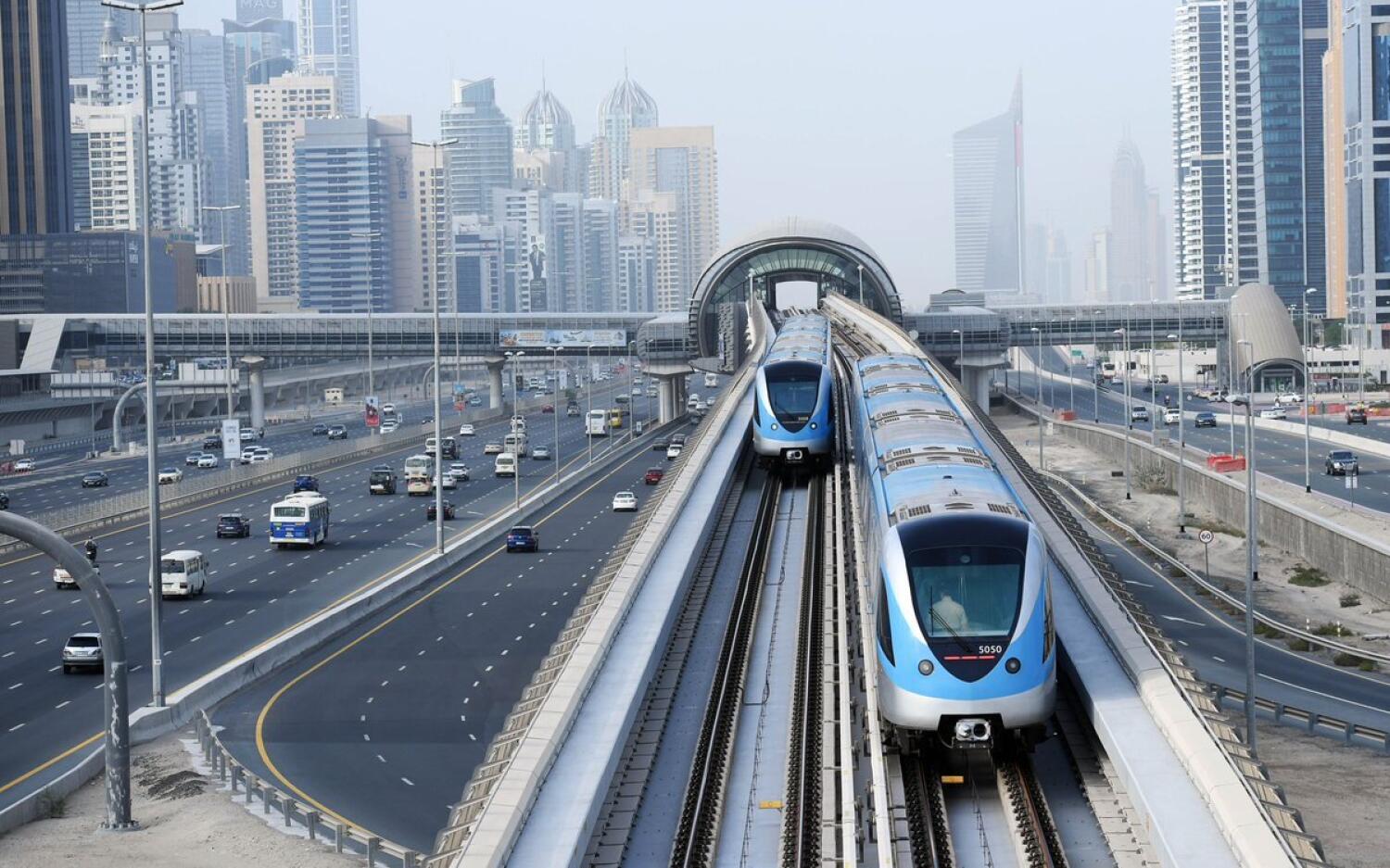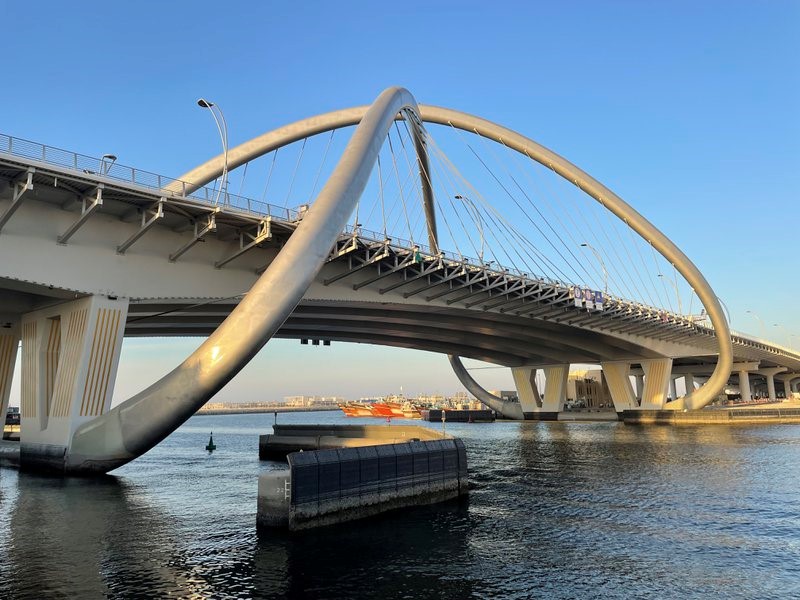
Explore the historic Al Fahidi district, the Spice Souk and Gold Souk, and traditional abra boats on Dubai Creek.
Historic Dubai: A Journey into the Past Among Skyscrapers
Dubai is associated with futuristic buildings, luxury hotels and incredible technological achievements. However, in the shadow of modern skyscrapers there is an amazing corner that has preserved the spirit of the old city - the Al Fahidi district, where you can feel the real flavor of the Emirates, immersed in the atmosphere of the past.
The journey begins with a walk through the narrow streets of Al Fahidi, one of the oldest areas of Dubai, where traditional houses made of coral stone and plaster, with wind towers called “barajil”, create the unique atmosphere of an old Arab city. These towers are natural air conditioners that were used long before the advent of modern technology. Today, there are art galleries, museums and cafes where you can try traditional Emirati dishes such as margouga, a thick meat soup, and a sweet drink called gahwa, made from Arabic coffee with cardamom.
From here, the path leads to the famous Spice Souk, where the air is filled with the rich aromas of saffron, cinnamon, dried lemons and many exotic spices. This is a place where you can not only buy the best spices from around the world, but also learn the secrets of their use in Middle Eastern cuisine. The neighboring Gold Souk beckons with its luxury - here the shop windows shine with rings, bracelets and necklaces made of gold of the highest standard. It was in Dubai that the world record was set: in 2010, the heaviest gold ring in the world was made here - Najmat Taiba weighing 58 kg, inlaid with 5.1 kg of precious stones!
The next stop on the journey is Dubai Creek, which played a key role in the city's development. In the old days, it was a bustling place, with fishermen catching pearls and traders bringing goods from India, Africa and Persia. Today, you can take a ride on a traditional wooden boat called an abra, which ferries passengers from one bank to the other for a nominal fee of just 1 dirham.
This trip allows you to see Dubai from a completely new side. Here, among ancient buildings, noisy markets and wooden boats, the history of the city comes to life, which in a few decades has transformed from a small fishing village into one of the most modern megalopolises in the world.
Recommended
See all
Dubai's Public Transport Sets Record — 6.39 Million Passengers During Eid Holidays

In celebration of the Islamic New Year, a special schedule for public transportation





